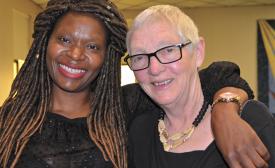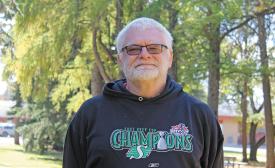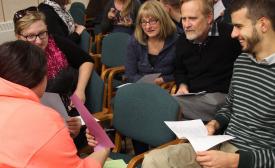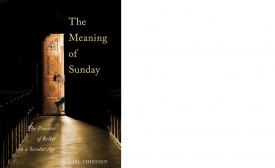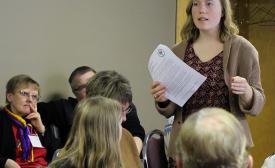A rich and diverse version of God
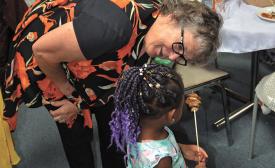
Carol Lint speaks to a young girl at a potluck dinner at Holyrood Mennonite Church in Edmonton. (Photo: Helena Ball / Holyrood Mennonite Church)
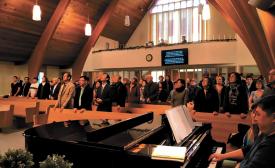
Members of all cultures at Sherbrooke Mennonite Church in Vancouver worship together in March 2020, at the last joint service before COVID-19 shut down public worship services. (Photo by Garry Janzen)

An intercultural, intergenerational worship team performs during an intercultural Christmas program at First Mennonite Church in Kitchener, Ont., in 2019. Pictured from left to right: Doug Cressman at the piano; singers Mira Baergen, John Albrecht, Selina Baergen Noa Bargen and Testimony Amayanvbo; guitarists Irene Suderman and Bryan Moyer Suderman; percussionist Dave Rogalsky; and guitarist Cesar Guevara. (Photo by Felipe Gonzalia)

Enjoying a potluck at Holyrood Mennonite Church in Edmonton are, from left to right: Guenther and Ruth Toews, and Jeremiah, Leila and Rachel Chokpelleh. (Photo by Helena Ball)
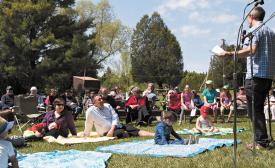
Rene Baergen, right, lead pastor of First Mennonite Church in Kitchener speaks at the congregations annual church picnic at Hidden Acres Mennonite Camp in 2019. (Photo by Felipe Gonzalia)
In 1963, Martin Luther King Jr. stated: “We must face the fact that in America, the church is still the most segregated major institution in America. At 11:00 on Sunday morning when we stand and sing, ‘Christ Has No East or West,’ we stand at the most segregated hour in this nation.”


